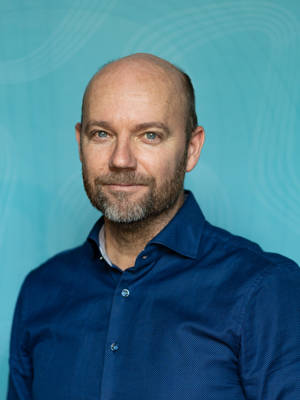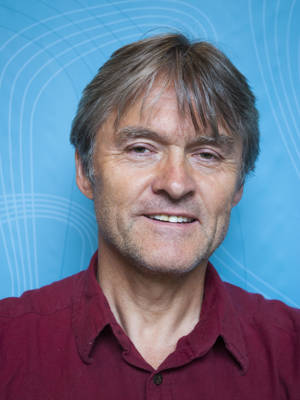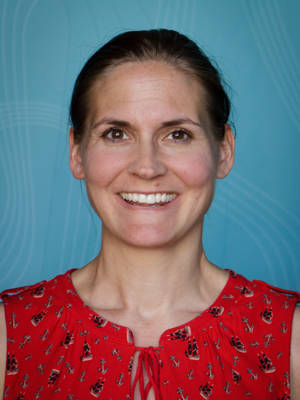
In a world where many traditional scarcities are overcome by technological innovation, substitution, and human ingenuity, climate change threatens to reintroduce environmental and resource issues as a major source of human insecurity. According to former UN Secretary General Kofi Annan, climate change constitutes “an all-encompassing threat” to human health, to global food supply, and to peace and security. The 2007 Nobel Peace Prize, awarded to the UN’s Inter-governmental Panel on Climate Change (IPCC) and former US Vice President Al Gore, is another testimony of the political salience of this issue.
Three physical developments associated with climate change stand out as potentially harmful to security and peace: decline in agricultural productivity, increase in frequency and intensity of natural disasters, and rising sea levels. The causal mechanism promoted to connect these changes to violence and conflict is struggle over dwindling resources, often accentuated by large-scale human displacement. This project explores in detail to what extent and under which conditions environmental variability, disasters, and migration in the form of urbanization are likely to lead to political violence. It employs multiple methods to allow wide flexibility in theory development and empirical assessment, including several field trips to relevant regions in Mali and Kenya. Unlike earlier general research on the subject, the project will pay particular attention to low-intensity conflicts, including non-state (pastoral clashes and violent inter-ethnic competition) and one-sided violence (attacks on unorganized civilians), which are the forms of violence most likely to emerge as result of environmental marginalization. A crucial step in this endeavor will be to develop and apply truly disaggregated research designs that adequately capture local dynamics of environment-conflict linkages. Although the overall project will be global in scope, we will give special attention to Sub-Saharan Africa where impacts of climate change are expected to occur first and with the most destructive force.
This three-year research project (July 2009 – June2012; partially extended to December 2012) is funded by the NORKLIMA programmewithin the Research Council of Norway, and further involves two full-time PhD projects sponsored by the Norwegian University of Science and Technology. The project consists of three sub projects:
Sub project A: Environmental Marginalization, Horizontal Inequality, and Armed Conflict
Sub project A is lead by Tor Arve Benjaminsen. It explores how various climate-induced environmental scarcities and their social distribution may lead to armed conflict. It improves on earlier research by shifting focus to low-intensity non-state and one-sided violence, using geo-referenced conflict data that facilitate disaggregation, and by conducting in-depth studies of temporal variations in local environmental changes and conflict.
The case studies focus on Kenya and Mali, whose drylands have been subject to numerous pastoralist conflicts. African drylands are expected to be among the first to suffer the impacts of future climate change through decreased rainfall and are also claimed to be typical examples of areas where adverse environmental developments such as desertification can have conflict inducing effects. These studies seek to establish temporal patterns of environmental change and conflict across sub-national regions by collecting and analyzing time-series data on precipitation, flood levels in waterways, forest cover (canopy and tree density), general biomass, population numbers, livestock numbers, and general land-use change. Sources of information include narratives of relevant groups, historical records and existing databases, maps, photographs of selected sites, aerial photos, and satellite images.
The large-N cross-national studies within SP-A will evaluate the working hypothesis that scarcities of subsistence resources pose a greater risk of conflict in areas with substantial disparities in group-level resource access. We plan cross-national as well as sub-national statistical analyses of exposed regions in Sub-Saharan Africa and Asia. A key contribution will be the use of Geographic Information Systems (GIS) to integrate new data on communal and one-sided conflicts6 with geo-referenced survey data from the Demographic and Health Surveys (DHS) and data on ethnic groups. The DHS dataset is a unique source that facilitates generating group-level measures of socio-economic status and inter-group inequalities.
Sub project B: Natural Disasters, Political Instability, and Armed Conflict
Sub project B is lead by Halvard Buhaug. This component explores security implications of major climatic disasters through their impact on economic and political stability in the affected societies. Natural disasters have a greater potential for extensive societal changes than other physical processes associated with global warming. The frequency and severity of climatic natural disasters have increased over the last few decades. In 2007, 360 hydro-meteorological disasters were recorded, affecting nearly 210 million people and causing damages in excess of 58 billion USD. According to the IPCC, extreme weather events will become both more frequent and more severe with global warming.
Recent research suggests that natural disasters significantly increase the risk of civil war, though little is known about the mechanisms whereby severe environmental shocks translate into organized violence. Competing hypotheses that refer to e.g. state failure, local grievances, and opportunistic rebels are still to be evaluated in a systematic fashion. This sub project will study both the short-term impact of disasters on organized violence, their economic consequences, and how severe environmental shocks affect the prospects for peace in conflict-ridden societies. Both large-N, cross-national analysis and in-depth analysis of local disaster-conflict dynamics (India) will be conducted.
Sub project C: Urbanization, Population Pressure, and Political Violence
The third sub project is lead by Henrik Urdal. The point of departure for activities within SP-C is the rapid urbanization in developing countries; the world’s urban population is projected to increase by 1.8 billion people within 2030 – more than the overall expected global population growth of about 1.7 billion. Climate change, with its possibly detrimental consequences for coastal populations (sea level rise) and agricultural societies in vulnerable regions (higher temperatures, increasing droughts), threatens to boost rural-to-urban migration further. While urban populations generally enjoy a higher quality of life than those in the countryside, large populations of slum-dwellers are largely excluded from access to resources, jobs, and public services. Failed expectations of a good life in the city could increase social grievances and the sense of relative deprivation, and ultimately transform into violent actions. Sub project C investigates how urbanization and social and economic exclusion affect patterns of social disorder in urban centers within the context of crucial intervening factors like poverty, employment, access to public services, and political system. It utilizes a new dataset of nearly 3,400 violent and non-violent political (‘social disturbance’) events from 55 major cities in 49 Asian and Sub-Saharan African countries since 1960.













